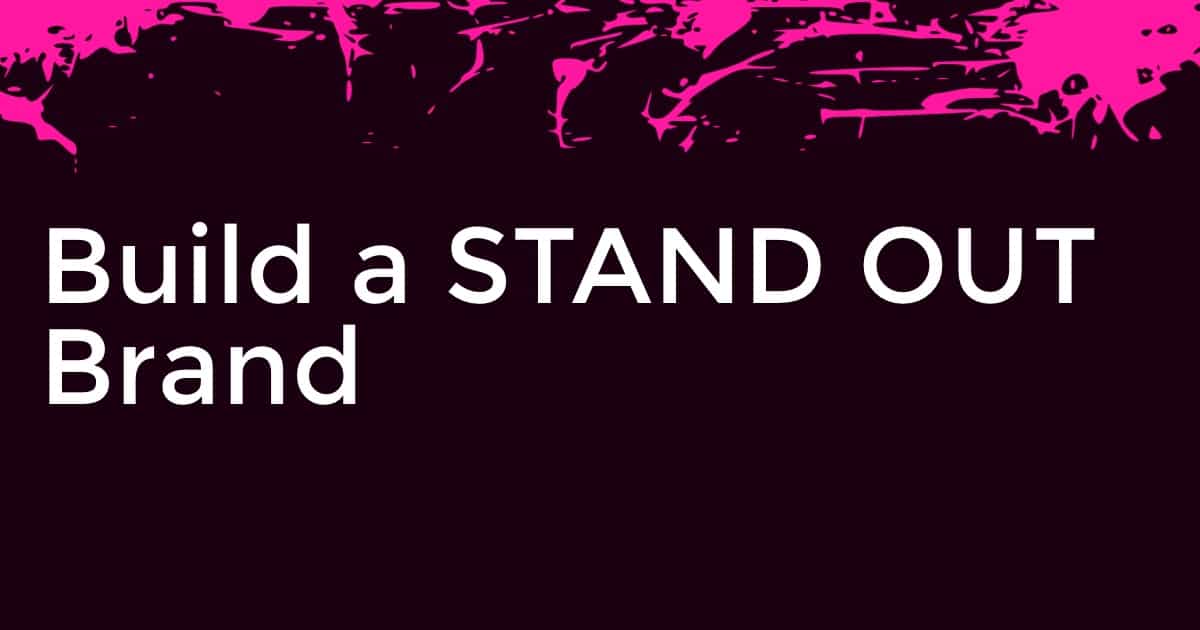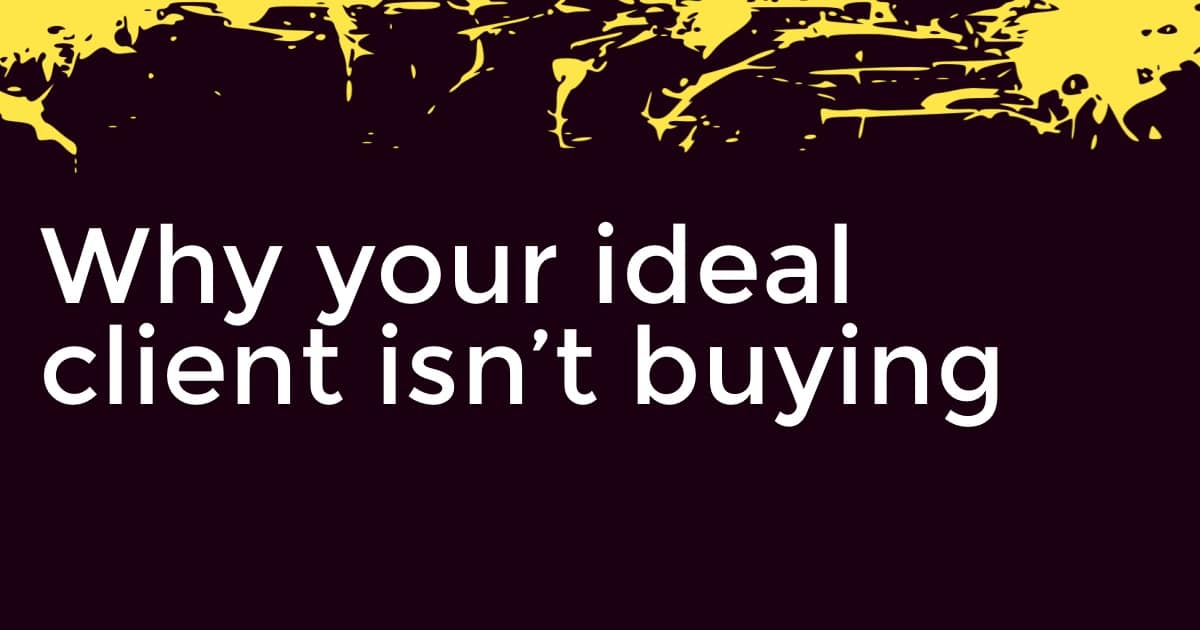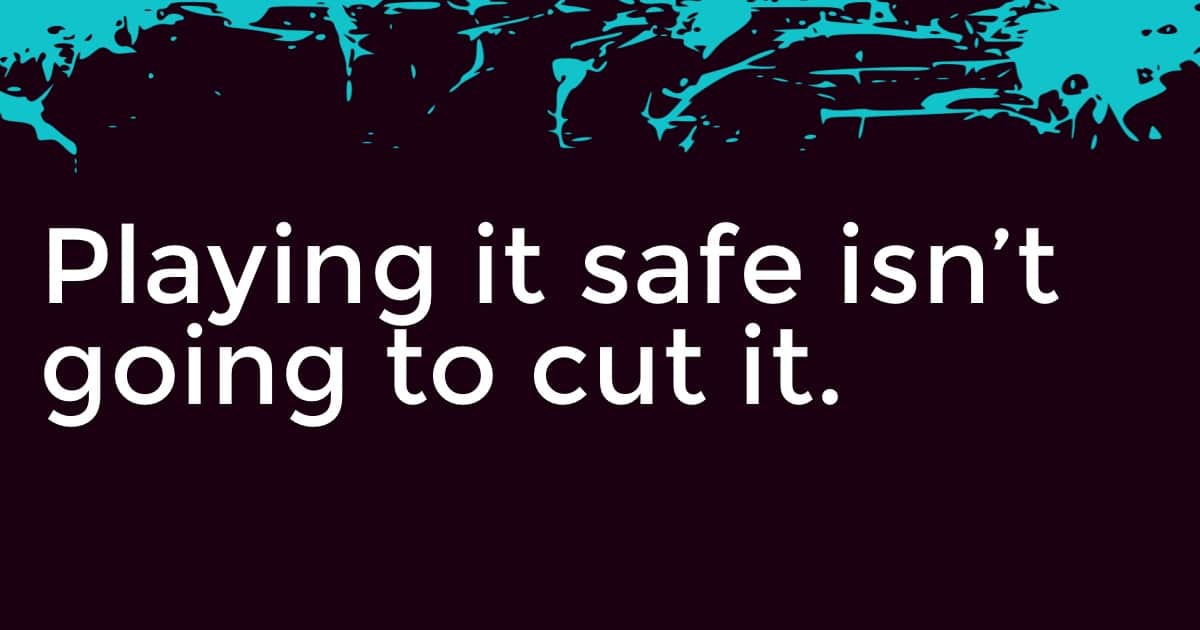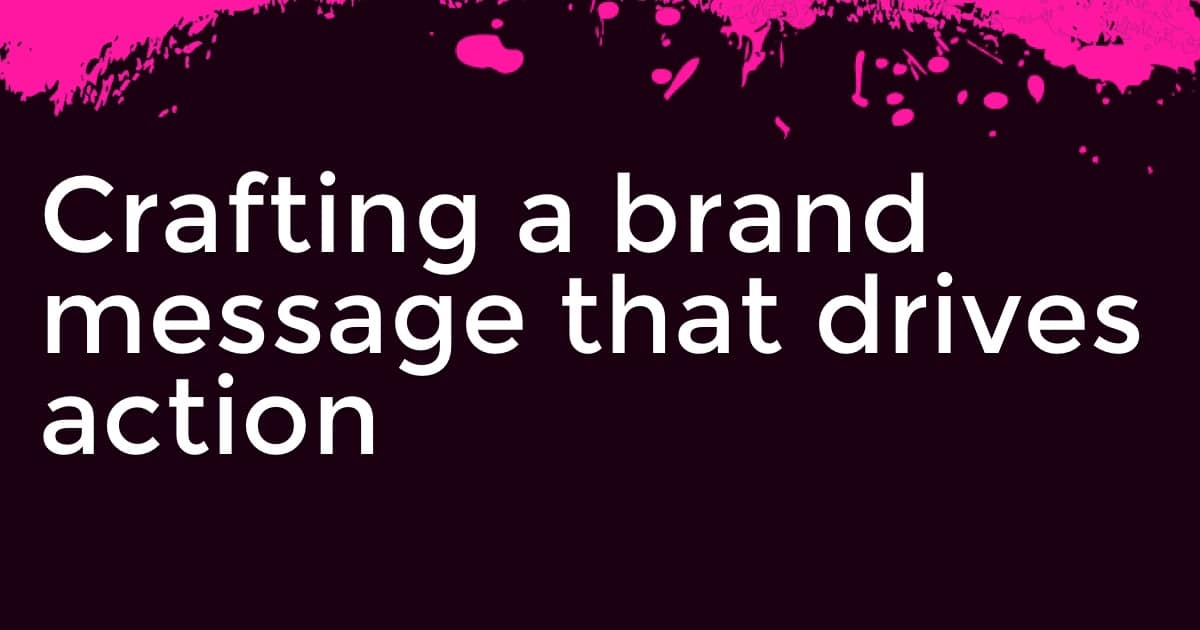Effective branding doesn’t just benefit your business – it can also elevate your own expertise and cement your position as an industry leader. Because branding involves so many moving parts, growing your brand can help you grow as a business owner as a nice little bonus.
Good branding involves thinking about your brand on a personal level, but also how it fits into a wider market. Even through the hard times and the many mistakes you’ll make along the way (hey, we all make them, no shame here!), a successful business owner is one who’s always learning (and trust us, the branding process provides plenty of opportunities for acquiring new knowledge!).
In our experience, the best branding comes from people who understand the bigger picture of their business, while also having a firm grasp on the movement happening across their entire industry.
A good brand strategy involves knowing your business, knowing your customers, and knowing your future goals inside out. It also involves observing your competitors to see how they’re positioning themselves and how to do even better, but we’ll just call this “strategic research” for now.
Good branding is about using everything in your toolkit to stand out in a crowded market, and when there’s no tools left in your kit, it’s about acquiring new ones. But how exactly does the branding process make you a better business owner? Well, we’re here to tell you!
Table of Contents
1. Analyzing your target audience means learning to read people better
Good branding is all about effective communication. If you don’t know how to speak to your customers, you’ll never get them to believe in your products or services. To know how to speak to your target audience, you’ll first need to analyze them.
Before beginning the branding process, most business owners will already know to segment their audience. Perfect, step one complete! However, after this stage is often where people get lost. You know what the best part about getting lost is though? Eventually getting back on the right track is all the more sweet!
Once your audience has been narrowed down into smaller groups, you then need to profile them even further. Utilize core concepts such as customer personas or map out your buyer’s journey. Whatever your method of choice, just try to know as much about your customer as possible (without stalking them, obviously!). In doing this, you’ll be able to not only understand your current customers better, you’ll also be able to read people better in general.
When we push ourselves to examine how people communicate and interact on a deeper level, we learn to ask questions that we wouldn’t normally ask. What value does my business bring to peoples’ lives? What type of psychology pushes people to make purchases? What emotions need to be triggered to establish a good customer experience? In understanding these things about your customers and your business, you naturally begin to understand people in general on a better level.
Tip: Hootsuite offers a great free template for creating a buyer persona. You can find it here.
2. You learn to communicate better and network more effectively
Following on from the previous point, understanding people better also allows you to improve your communication skills. Because a large part of branding involves brand messaging, good communication is an essential component of reaching your audience. If you know who your customers are and how they think, it’s easier to tailor your communication to suit different groups of people.
At its core, communication is a process that involves signs, symbols, and signals being transferred between people. Because we all interpret these signs and signals differently, understanding how to adapt in certain situations is a key skill for a business owner to have.
When developing your brand’s voice, ensuring that your messaging can’t be misinterpreted or taken the wrong way by different groups of people is crucial. Therefore, when you learn to brand a business, you also learn how to communicate in a way that delivers your message directly, and also strategically.
For example, a global business might find that the branding they have in one country doesn’t work in another — whether that’s because of different customs, humor, or language associations. Therefore, it’s important for the more general image of a global brand to work across all nationalities and subgroups within society. Finding this kind of balance in brand messaging can take time, but once you know how to achieve it, you’ll never forget!
3. You discover new industry trends and tools
Branding isn’t something that you do once for your business and then completely forget about. Even though your core brand image and brand identity might follow consistent themes, your brand should always be developing. As your business grows, your brand will grow with it, so keeping on top of how to refresh your brand is essential.
No brand ever wants to be seen as being outdated or behind the times, so keeping track of industry trends and tools is key. Your brand needs to keep up, but if you can get ahead — even better! The best branding experts are known for monitoring industry trends and taking part in futures thinking as a way of keeping on top of what their customers want. If you can spot trends before consumers become aware of them, you’ll be able to adapt to their needs more efficiently.
For example, companies who weren’t monitoring the impact of sustainability on business operations are unfortunately now scrambling to keep up with consumer demands. This has resulted in some brands resorting to green washing and even outright lying about their commitment to sustainability. Consumers are smart and now have more access to research tools than ever — so if there’s something they want to investigate about your business, they’ll find a way to do it. This is why getting ahead of the curve wherever possible and adjusting your business operations before circumstances force you into it is a great way to keep your brand ahead.
As well as keeping up with the latest trends, knowing the latest tools being used in your industry is a good way to develop your skills. In the digital age, new technology is always being released and if you want to be seen as an industry leader, you need to know your stuff.
If people are hyped about something, be one of the first to check it out and determine whether that technology is suitable for your brand or not. If it is, become an expert in it as quickly as possible and showcase why your brand is one to watch. In doing this, you’ll keep yourself on your toes and naturally be better at adapting to change within your operations.
4. People who are good at branding are great at applying feedback
Have you ever been told that you’re a great listener? Well, good news! This might also mean that you’re likely to be good at branding! The best brand experts are people who know how to listen to feedback and apply it wherever possible.
If you don’t already have the skills of a great listener, you can develop these skills with some practice. Focus on using brand feedback to improve your branding and automatically, you’ll find that your listening skills improve significantly. You might not always like what others have to say, but often, there’s value in viewpoints outside of your own perspective.
Good branding is a balancing act between effective communication and strategic planning — so don’t get caught up on only your own ideas. Listen to what people are saying about your brand and integrate their perspective as much as possible. Social listening is a great way to develop your listening skills and open your mind to the opinions of others. If people are going to talk about your brand to others, you should know exactly what they’re saying!
5. You can become more creative, while also advancing your business skills
Not everyone is born with a creative skill set, but that doesn’t mean that new skills can’t be learned. If you find that you’re not a naturally creative person, the branding process can be a great learning curve.
Because the branding process is so multifaceted, working from the ground up with your brand will uncover new skills you never knew you had (or ones you find you have to acquire quickly!). While outsourcing some of your branding might be necessary, it’s important to be as involved as you can throughout the process.
We believe that experts are there for a reason, so allowing someone else to take over your branding is usually a great idea. This doesn’t mean that you shouldn’t be an active participant in the process though.
If you hire someone to look after your branding, make sure you’re still the one signing off on everything and get a good look at how the process happens. Knowing your brand inside out is the best way to ensure that you can develop it in the future, without needing the exact same people as part of the process.
The same applies to your messaging; if you employ a content agency now — they might not be available in the future, so ensure that you’re part of the development process as much as possible.
It’s your brand, so even when someone else is taking the lead, take the time to understand how your brand is being developed… you never know when you might need to jump in yourself!
Some final thoughts before we go!
Overall, the most important thing to remember with branding is that good branding is always worth putting time into. Even if you choose to outsource a large portion of your company’s branding, you can still be involved in the process and learn along the way.
Even knowing the difference between a great marketing company and a bad one is already a good learning curve, so ensure that you take control of your own branding wherever possible — even if you’re not actively leading the creative process.
If you’d like some help in making your branding more effective and want to learn something new along the way, get in touch and we’ll talk you through the next stages! Contact us.





